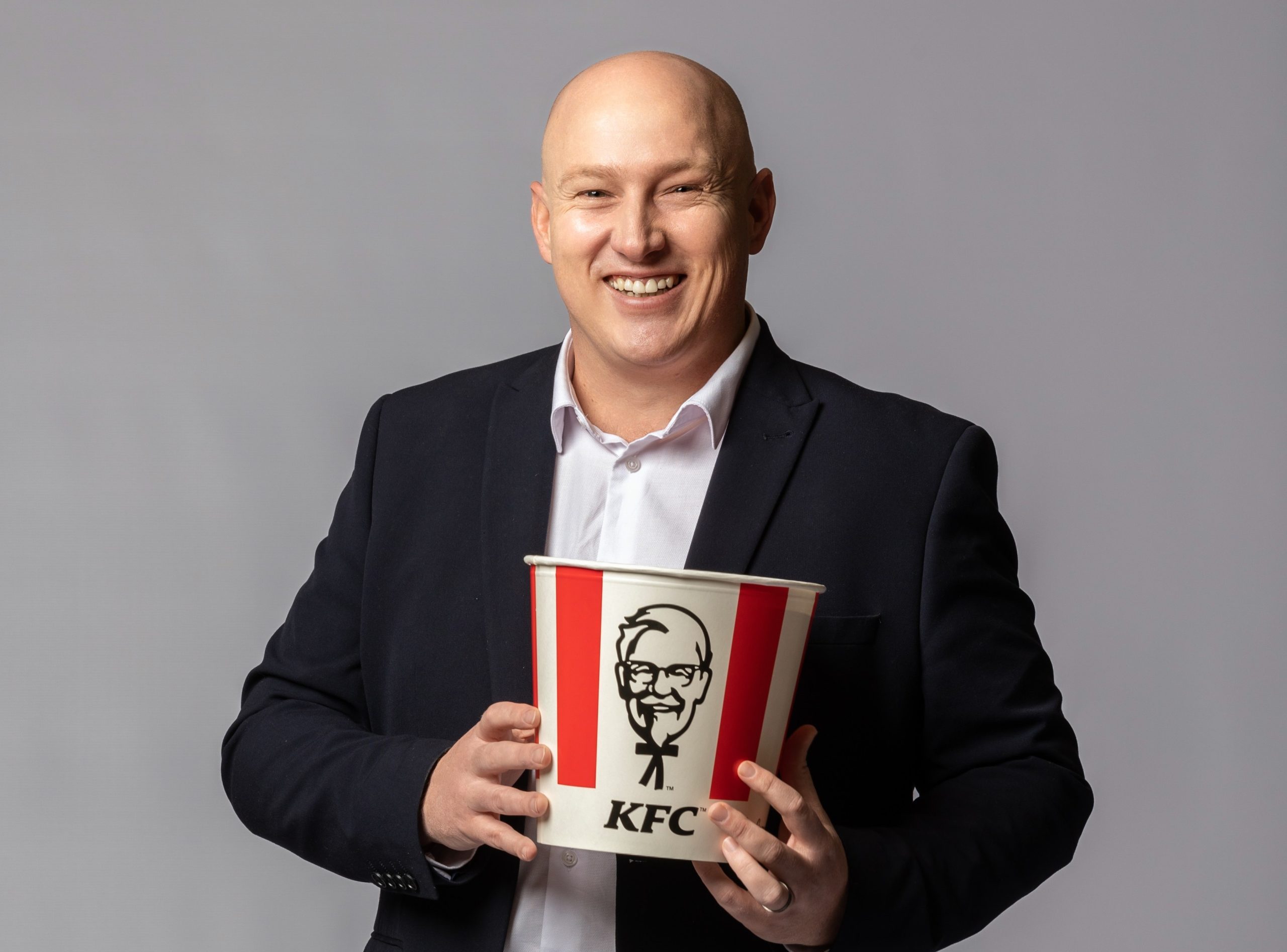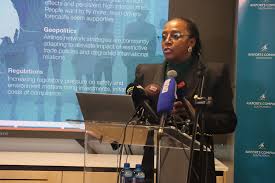Company News
LemFi Launches AI-Powered “Send Now, Pay Later” Service, Combining Credit and Remittances for UK Immigrants

LemFi, the leading AI-powered international payments platform dedicated to building financial products and services for immigrant communities, today announced the launch of Send Now, Pay Later (SNPL), a credit-powered remittance product that allows its UK customers to use their LemFi credit line to send money home to their families when they need it most.
For the millions of immigrants in the UK who send nearly £10 billion back home annually, there is often a timing mismatch between unexpected expenses and local earning cycles. This can force them to delay pivotal transfers home or turn to unregulated, expensive credit solutions. Since traditional remittance providers typically require immediate payment, Send Now, Pay Later aims to address this critical pain point and provide vital service to customers who are new to the country and have a limited UK credit history.
Powering SNPL is LemFi’s Ensemble AI model, which combines multiple data sources to inform credit decisions, including national credit bureaus, open banking data, and the company’s own remittance data, to help determine credit limits and repayment structures. This intelligent system also automatically adjusts depending on the individual customer’s journey and available data points, determining the required data points based on the customer’s circumstances and then offering risk-adjusted credit based on the available data.
Ridwan Olalere, co-founder and CEO of LemFi, said: “The rise of Buy Now, Pay Later means people across the world can buy products and stagger the payments depending on their cash flow. But this has never been possible before with remittance, despite it being such a core part of the immigrant financial experience. With Send Now, Pay Later, we’re integrating credit directly into the remittance experience, ensuring financial support is never delayed by cash flow timing. It’s also a testament to our commitment to building a full-stack, AI-enabled financial ecosystem that understands and serves the unique challenges faced by global citizens.”
How Send Now, Pay Later Works
To access SNPL, LemFi customers are onboarded to LemFi Credit, which gives users access to credit lines ranging from £300 to £1,000, depending on their credit profile and assessment, which is enabled by leveraging open banking technology to evaluate eligibility. This makes it accessible even to recent immigrants who often lack extensive UK credit histories and are excluded from traditional finance services. In addition, LemFi’s platform can recognise international credit histories and employs alternative credit assessment methods that look beyond traditional UK financial records. This allows users to start with smaller credit limits and build their UK credit profile over time while accessing essential financial services.
This is done through the company’s AI-driven decisioning engine that analyses a wide spectrum of data points, including open banking insights, bureau files, remittance history and patterns within LemFi, as well as international credit footprints. By training models across these diverse datasets, LemFi can predict affordability and repayment likelihood with greater accuracy than traditional scoring approaches while reducing bias that often excludes immigrants from mainstream credit, helping to solve the issue of “credit invisibility” through the application of artificial intelligence.
Once onboarded, customers can access their credit limit to send money to any of the 30+ LemFi-supported destination countries. When choosing the SNPL option, LemFi immediately processes the transfer to the recipient while creating a deferred payment obligation for the sender.
Bridging the Credit Divide
Currently, immigrants face significant and widespread issues when it comes to trying to access credit and banking services more broadly. Approximately five million individuals in the UK are considered “credit invisible”, with immigrants from emerging countries disproportionately affected. Research indicates that nine in 10 immigrants report that accessing credit has become more difficult in recent years, while 13% of migrants are excluded from banking services compared to just 3% of the general UK population. This exclusion creates a cascade of financial challenges that extend beyond simple access to credit.
LemFi’s approach to credit assessment specifically addresses these challenges. As well, SNPL will tackle friction points around timing and bank transfers. Its real-time / same-day transfers reduce the time taken by traditional banks by a third and provide a means for its users to support their community despite their cash flow.
Global Expansion and Market Opportunities
Following the UK launch, LemFi plans to expand the SNPL service to its other markets in the United States, Canada, and Europe. It currently supports over 2 million customers, enabling them to send money to over 30 countries across Asia, Africa, Europe, and Latin America.
Since its founding, LemFi has supported over 2 million customers in the United States, the United Kingdom, Canada, and Europe. In January 2025, LemFi secured $53 million in Series B funding, bringing its total funding to over $86M. Investors include Highland Europe, LeftLane Capital, Endeavor Capital, and Y-Combinator.
Company News
KFC’s secret recipe is out, the one the world really needs

KFC Africa’s big secret is out, and no, it’s not the blend of 11 herbs and spices, it’s a recipe of hope to end child hunger – open-sourced globally for sharing and scaling in honour of World Food Day. Unveiled 7th October at The Biggest Hunger Hack in Johannesburg, KFC Africa has, for the first time ever, open-sourced the blueprint for Add Hope, its 16-year-old initiative that is also South Africa’s largest non-governmental feeding programme.
What began as a hackathon will now have global reach. During the past week, 60 of the country’s smartest young minds, in partnership with the University of Johannesburg, have been supercharging the Add Hope recipe to make it even more impactful.
KFC Africa Head of Corporate Affairs Andra Nel says Gen Z in Africa is key to ending hunger. “They truly get it because they’ve lived or witnessed it. They also understand technology, community and systems thinking better than most. So we gave them our blueprint and challenged them to turn it into fresh solutions for even more hope.”
Nel says the Add Hope team was blown away by the ideas that emerged from the hackathon. “These ideas and the blueprint will make it easier for others to explore the recipe, share it and scale it. That’s a great way to mark World Food Day on 16 October and honour its theme of global collaboration.”
Biggest Hunger Hack
Add Hope’s success is itself rooted in the power of collaboration, starting with KFC customers adding R2 donations to KFC’s own significant contribution, and ending with meals being prepared for vulnerable children at thousands of feeding centres nationwide. A R1 billion milestone was reached last year, with over R600 million donated by the public and R400 million by KFC.
“We know collaboration is the only way to scale this fight even further and address the great need that still exists, which is why we invited leaders from business, government and civil society to join us at The Biggest Hunger Hack,” says Nel.
“We’re hoping other organisations will heed our call to collaborate with us to scale what already works. Just off this campaign, new partnerships with companies like McCormick, Digistics, Coca-Cola Beverages South Africa, Foodserv, Tiger Brands, CBH and Nature’s Garden, to name a few, will give us a flying start.”
The Biggest Hunger Hack was hosted at the University of Johannesburg, and Vice-Chancellor and Principal Professor Letlhokwa Mpedi said UJ was thrilled to partner with KFC on an initiative in which young people used their Fourth Industrial Revolution expertise to tackle child hunger.
“This collaboration is a prime example of how young innovators, equipped at the university, can develop practical, scalable solutions for societal impact. We look forward to seeing the tangible difference their ideas will make in alleviating hunger through innovation.”
Poverty to blame
Panellists at The Biggest Hunger Hack outlined the scale of the child hunger challenge and said a society-wide approach was the best option for a sustainable solution.
Dr Imtiaz Sooliman, founder of Gift of the Givers, said. “When you go to a disaster site, the first thing people ask for is food. That’s when you realise that that hunger is not two hours old, it’s been there for days.”
South Africa is one of 20 countries responsible for 65% of severe poverty worldwide, according to Siya Leshabane of UN Women. “Hungry children struggle to focus and retain information. Poor nutrition leads to fatigue and children struggle to take themselves out of that whirlwind.”
Luvuyo Sandi, SED business and fund manager, Kagiso Trust, said hunger is not an isolated problem. “The reason this child is hungry has to do with household income issues, and beyond that the reason is unemployment or being unemployable.”
Dr Marc Aguirre, country director at HOPE worldwide, described child hunger as a national development crisis. “We know it’s impacting our GDP by about 10%. Stunting is costing this country billions of rands, so we need to look at addressing child hunger as an investment in the future.”
Gen Z solution
Nel says ideas from the hackathon teams will be tested over the next few months, and a collaborative business-led proposal will be prepared for the National Convention early in 2026 – a Gen Z solution to child hunger from KFC Africa. Potential seed funding of up to
R1 million could be allocated to the development of the winning solution.
“This is the first time a major South African corporation has open-sourced a successful social impact model, potentially revolutionising how businesses tackle social challenges,” she says.
“We’re not just feeding children any more, we’re feeding a movement with the potential to end child hunger in countries forever. This is the secret recipe the world really needs.”
Company News
KFC to reveal its secret recipe

In a move that has sent shockwaves through the quick-service restaurant industry, KFC Africa announced today that it will do the unthinkable: reveal its secret recipe. The recipe has been the stuff of corporate legend, with only a handful of people knowing the complete formula. Competitors have tried to reverse-engineer it, conspiracy theorists have developed elaborate ideas about it, and social media has played its part in stoking the flames. The objective has always been the same: to work out what’s in the recipe. And on Wednesday 8 October, the truth will finally be revealed.
The world deserves the truth
“People have been asking us for years about our secret recipe,” says Grant Macpherson, Chief Marketing & Digital Officer, KFC Africa.
“They’ve guessed, they’ve pleaded and they’ve done their best to copy it. And now we’ve decided the world can finally share it. We think it will be better for everyone if it’s out in the open.
“History will decide whether or not this is a masterstroke, but we believe it will be good for us and most importantly good for South Africa.”
Macpherson says KFC will explain its reasons for revealing the secret recipe only on the day of the big reveal.
Precious asset
“There’s obviously going to be a lot of speculation about why we would give away this precious asset, and why now,” he says.
“Our loyal customers may be wondering whether this will kill the mystique that has made KFC South Africa’s biggest quick-service restaurant brand.
“We don’t think it will, but everything will become clear on 8 October. Until then, all the guesses and opinions will be just that.
Company News
Airports Company South Africa Delivers Record-Breaking R1.1 billion Profit Amid Strong FY2024/25 Results

Airports Company South Africa (ACSA) has delivered a landmark financial performance for the year ended 31 March 2025, reporting a record net profit of R1.1 billion — more than double the R472 million achieved in 2023/24. This milestone signals more than just financial resilience, it is a powerful testament to black excellence and the organisation’s stature as one of South Africa’s best-performing state-owned entities. Beyond the numbers, this achievement reaffirms ACSA’s role as custodian of critical national infrastructure and as a key driver of South Africa’s economic growth, connectivity, and global competitiveness.
Revenue grew by 13% to R7.9 billion (2023/24: R7.0 billion), underpinned by strong performance across both aeronautical and non-aeronautical streams, with the latter now contributing 49% of total revenue. Earnings before interest, tax, depreciation and amortisation (EBITDA) rose to R2.9 billion, reflecting a healthy margin of 37%, while net profit climbed to R1.1 billion, driven by disciplined cost management and strengthened internal controls.
Capital expenditure rose to R861 million (2023/24: R568 million), reaffirming ACSA’s commitment to renewing and expanding airport infrastructure in support of operational excellence and long-term growth. The company’s balance sheet remains strong, with total assets of R32 billion, a net debt-to-capitalisation ratio of just 8%, and liquidity of R3.4 billion at year-end, ensuring substantial coverage for future investments.
In recognition of its strengthened financial position, the ACSA Board has approved the payment of R198 million in accrued preference share dividends and declared R113 million in ordinary share dividends for 2024/25. This marks a sharp improvement from 2023/24, when total dividends amounted to R815 million, comprising R768 million for preference shares and R47 million for ordinary shares. The year-on-year growth in ordinary dividends reflects not only ACSA’s stronger balance sheet but also the company’s sustained recovery and renewed capacity to deliver value to shareholders.
Commenting on the results, ACSA Chief Executive Officer, Ms. Mpumi Mpofu, said, “Our performance this year has been a story of contrasts, strong financial delivery on one hand, and operational headwinds on the other. It has demanded from us commercial discipline, executional rigour, and also humility and renewed accountability.”
“While these challenges were significant, they taught us valuable lessons to focus on preventative maintenance and avoid service disruptions for our stakeholders the airlines and passengers. This we will achieve through continuous improvement, targeted infrastructure investment and enhanced operational readiness and customer experience. ACSA’s performance demonstrates disciplined financial management and a successful strategy of revenue and services diversification.”
Mpofu added, “Our financial results are not only a testament to the resilience of ACSA but also a reflection of South Africa’s broader aviation recovery. With a clear strategy to ‘Innovate, Grow and Sustain,’ we are well positioned to support national priorities, foster economic growth in trade and tourism through a modernised aviation sector.”
Looking ahead, ACSA is positioning itself as a future-ready airport operator through a R21.7 billion capital investment pipeline over the next five years, with flagship projects at O.R. Tambo International Airport (ORTIA), Cape Town International Airport (CTIA) and other key regional airports. This investment is complemented by a sharpened focus on innovation and digitisation, including partnerships with the CSIR and The Innovation Hub to drive aviation research, predictive maintenance, and biometric-enabled passenger journeys.
At the same time, ACSA is strengthening supply chain governance and transformation to ensure that small, medium, and micro enterprises, particularly those owned by women, youth, and people with disabilities benefit from its procurement footprint.
As a state-owned company, ACSA carries a multi-faceted mandate: to enable trade and tourism, ensure safe and efficient air travel, and support South Africa’s broader economic development and global connectivity.
ACSA will continue to build on this momentum, deploying advanced systems, embracing renewable energy solutions, and aligning with South Africa’s just energy transition. In doing so, we aim not only to strengthen our resilience and governance, but also to position ACSA as a trusted, sustainable gateway for trade, tourism, and global connectivity—driving growth that endures well beyond the numbers.
-

 Corporate Citizenship3 days ago
Corporate Citizenship3 days agoAfrican private sector and philanthropic leaders launch landmark coalitions to address Africa’s learning crisis
-

 ESG & Sustainability2 days ago
ESG & Sustainability2 days agoExxonMobil Named Environmental Social Governance (ESG) Leader of the Year Award
-

 Investing2 days ago
Investing2 days agoVerdant IMAP Advises on USD 23.4 Million Equity Raise to Reunify Ctrack’s Global Telematics Business
-

 Afripreneur8 hours ago
Afripreneur8 hours agoMeet the face behind Sapphaster, where thoughtful gifting meets love and care
-

 Company News1 day ago
Company News1 day agoKFC’s secret recipe is out, the one the world really needs











